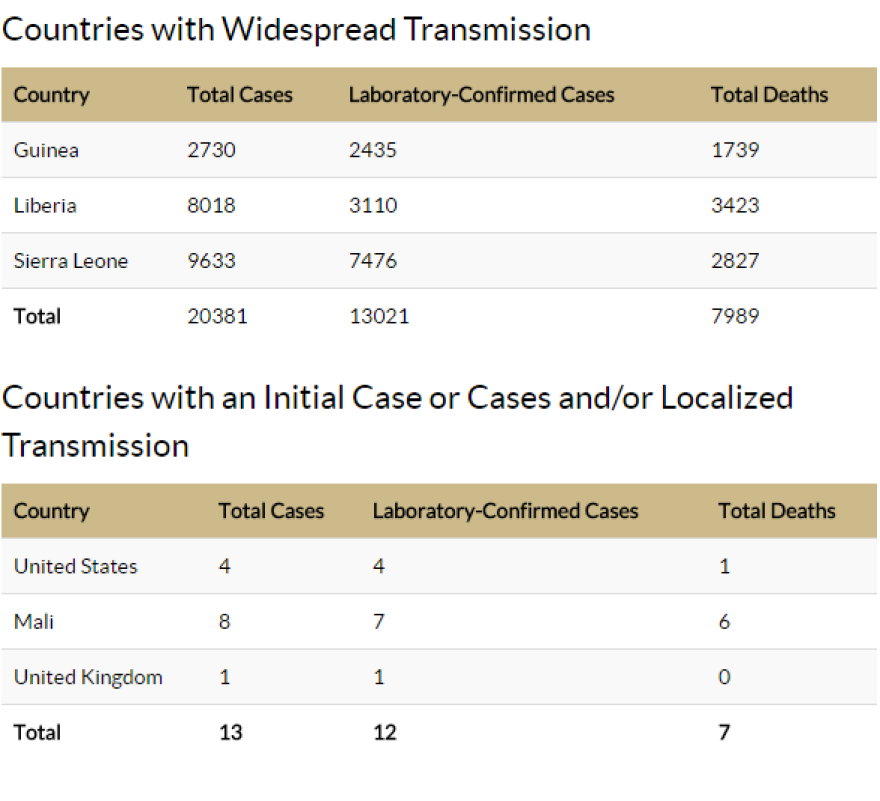Much can be said about when the news broke in late September that Ebola had arrived in Texas. There certainly was a chain of missteps and outright botched procedures. There was a palpable fear of the virus that gripped the nation.
While the Center for Disease Control announced that there was no reason to panic, there were those who took to the airwaves with calls to seal the borders and end flights to Africa.
“The Obama Administration so far has been, like it’s approach to so many other things, fundamentally unserious. And the time has come to ban commercial air travel from countries that have an active Ebola outbreak,” Texas Senator Ted Cruz said while appearing on Fox on The Sean Hannity Show.
It became a political debate between hysteria and science based decision making. And the news media frequently ill served the public with round the clock over the top coverage. Now looking back we can see that there was no U.S. Ebola outbreak and that maybe due to the administration’s policies or just dumb luck. Today there is no Ebola in the United States but in West Africa the outbreak continues, especially in Sierra Leone.

The number of known cases globally has now exceeded 20-thousand -the World Health Organization announced this week.
The death toll from the outbreak, which has been mostly confined to West Africa, has risen to 7,905 according to the World Health Organization. And there was one in Texas.
In late September, Thomas Duncan became the first person to be diagnosed with Ebola in the U.S. Duncan- who had recently arrived from Liberia in West Africa, showed up at a Dallas hospital with a high fever but was given extra strength Tylenol and sent home. Duncan returned four days later and in critical condition. On October 8, Duncan died of Ebola. This week he would have celebrated his 43rd birthday.
KERA reporter Doualy Xaykaothao spoke to Duncan’s family about their memories of him.

Ebola was once considered an obscure virus – confined to Africa that didn’t pose much of a threat to the world. But that has since changed with the 2014 outbreak. But research into finding ways to treat and beat Ebola is not new. As I found out in October when I visited the Texas Biomedical Research Institute in San Antonio – where work on Ebola has been ongoing for over 10 years. And that research frequently turns to primates for testing.
After Duncan arrived at the Texas Health Presbyterian Hospital Dallas two of his who treated him also became infected, setting off a nationwide effort to contain the disease, and fears of a larger outbreak.
The head of the hospital later apologized for the problems with Duncan’s care and admitted that mistakes were made with protecting the nurses from Ebola.
The organization National Nurses United said health care workers were on the front line combatting Ebola and their safety needed to be a priority.
They called for access to full protective gear, proper training on the gear and the implementation of a mandatory buddy system for nurses. I spoke with Martha Kuhl -a registered nurse and the Co-President National Nurses United.
Ebola is a very real threat but it can be safely dealt with. But there is concern about the paranoia about Ebola that some began to call "Fear-bola."
Remember the Carnival Cruise ship that the media converged on – it was turned away from Mexico and had to return to Texas.
The Dallas lab worker never contracted Ebola. She only may have had possible contact with Duncan’s labwork. Never the law the Moore, Oklahoma, Public School officials asked students and faculty who were on the same cruise not to come to school until the coast is clear.
And using the excuse “an abundance of caution” Navarro College, a two-year college about 60 miles from Dallas, sent out rejection letters to some applicants from Nigeria because the country had a few Ebola cases.
A Texas school district closed its schools for a deep cleaning due to "Fear-bola." Belton ISD is near Temple Texas. Susan Kincannon is the Superintendent of Belton ISD.
Ebola is a deadly infectious disease. It continues to spread in West Africa and it’s likely to reemerge in the United States. But now the novelty of the news story is gone and we can hope that we’ll do a better job of dealing with the reality of the virus. Ebola needs two things to spread and become a major outbreak – poverty and ignorance. When Ebola returns we as a nation have the resources to contain and eliminate it. But we always have to be on guard for "Fear-bola."



